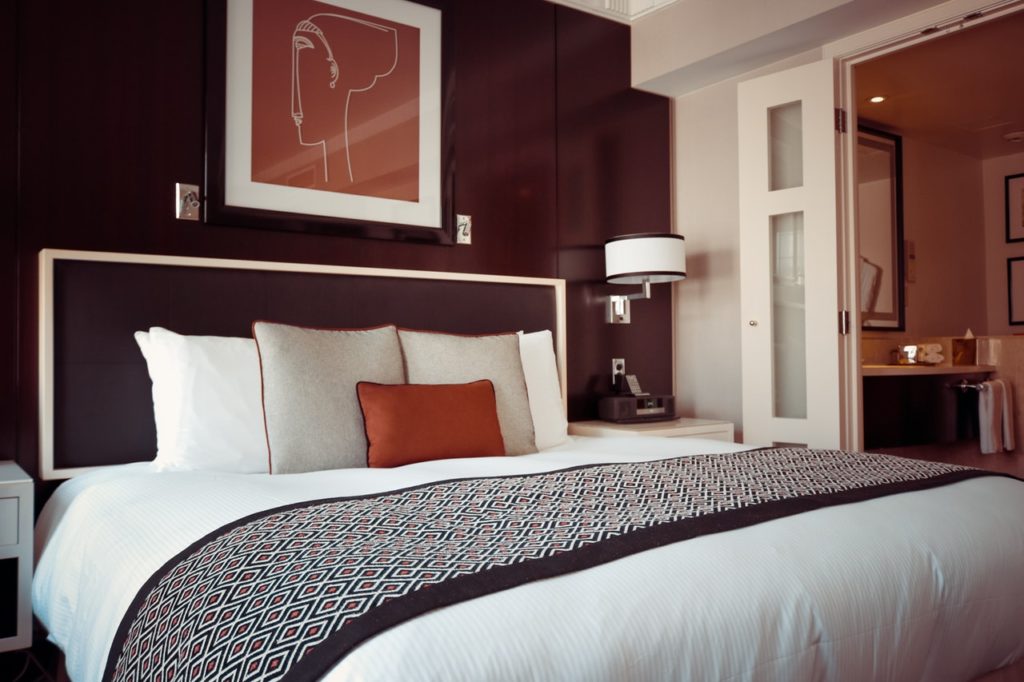5 Creative Ways to Get Better Sleep at Night
If you’re like millions of Americans, sleep is a struggle. Whether it’s falling asleep, staying asleep, or waking up feeling groggy and disoriented, there’s usually an explanation. In this article, we’re going to provide several tips to help you address underlying issues and get better sleep.

Try These 5 Tips for Better Sleep
When you were young and healthy, you were able to fall asleep (and stay asleep) essentially on command. But as you’ve gotten older, it’s become more difficult. Sometimes this is a result of medical issues, while other times it’s the result of poor or unbalanced lifestyle choices.
Want to learn how to get better sleep at night without popping prescription pills? Here are several helpful tips and tactics:
- Create a More Consistent Schedule
Your body has a circadian rhythm, which is an internal 24-hour clock that constantly runs in the background and helps you carry out essential processes and functions. One of these functions is the sleep-wake cycle. This cycle tells your body when it’s time to go to sleep and when it’s time to wake up.
When your circadian rhythm is in alignment with your daily schedule, it allows you to get the necessary seven to nine hours of sleep per night. When it’s misaligned, falling and staying asleep becomes very difficult.
The good news is that you can train your circadian rhythm over time. This is done by creating a consistent and repeatable schedule. If you want to get eight hours of sleep, try going to bed at 10 p.m. every evening and waking up at 7 a.m. Your circadian rhythm will eventually become programmed to this schedule, which makes it easier to get sleep.
Pro Tip: Do your best to follow the same sleep schedule on the weekends, too. Eventually, you’ll reach a point where you don’t even need an alarm clock.
- Lower the Temperature
Research from the Sleep Foundation finds that the best temperature for sleep is 65 degrees Fahrenheit. And while this may vary from person to person by a few degrees, doctors unanimously agree that cooler temperatures are better for sleep.
“Our bodies are programmed to experience a slight dip in core temperature in the evening,” Sleep Foundation explains.” Turning the thermostat down at night may help with temperature regulation and signal your body that it’s time for bed.”
If you don’t have central air conditioning in the warmer months, you can install a standalone unit in your bedroom to lower the temperature and help you sleep better at night.
- Try Tuning Fork Therapy
If you’ve never tried tuning fork therapy, we highly recommend it. While known for offering a long list of distinctive physical and mental health benefits, better sleep is one of the secondary effects.
Tuning fork therapy, which involves the application of tuning forks (tuned to very specific frequencies) to specific areas of the body, increases relaxation, releases tension, and is often shown to encourage better and deeper sleep.
- Lower Blue Light Exposure
Blue light, which is emitted from devices like phones, computers, tablets, and TVs, interferes with your body’s natural ability to prepare for sleep. It blocks melatonin (the sleep hormone) and prevents you from feeling sleepy.
If you want to increase your sleep quality, try limiting your blue light exposure in the three hours prior to bedtime. This may mean swapping out your habit of watching TV in bed with something a bit more sleep-friendly (like reading).
- Take These Supplements
In addition to taking melatonin supplements to encourage timely secretion of melatonin in the body, there are also several other supplements that can induce relaxation. They include ginkgo biloba, glycine, valerian root, magnesium L-theanine, and lavender. You’ll want to speak to your doctor before trying these supplements. Also, be sure to only add one new supplement at a time. They won’t magically make you get deep sleep. But if you combine them with other healthy sleep habits, investing in sleep supplements can prove helpful.
Get Your Health Back on Track
Sleep is one of the foundational pillars of good health. A lack of good sleep can lead to poor health and the need to seek urgent care near me for medical attention. Good sleep, good diet, and regular exercise can take you far in life. Unfortunately, for many Americans, sleep doesn’t get nearly the attention it deserves. As a result, health is lacking and it’s often difficult for folks to pinpoint the reason.
Whether you’re suffering a chronic health issue that hasn’t been effectively treated, or you simply feel “off,” getting more deep sleep each night will have a net positive impact on your life.
